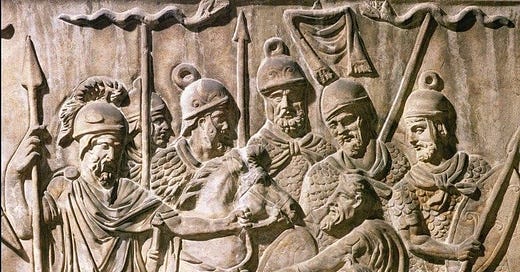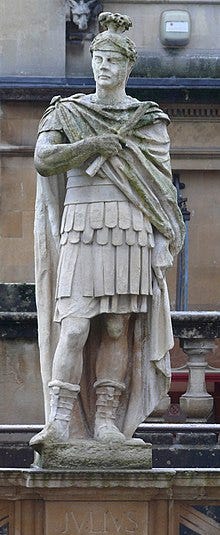Publius Cornelius Tacitus is one of the Roman Empire’s greatest historians, rivaled only by Livy. Perhaps best known for his Annals and Histories of Rome, both works of monumental proportions, this substantially smaller work (along with his Germania) is an ideal place to meet the great historian. Tacitus was born c. 56 A.D., right in the middle of the New Testament era and during the time when Rome’s expansion was still ongoing. There was, however, significant turmoil in Rome’s leadership during Tacitus’ life under ignominious figures like Nero and Domitian. Tacitus learned to despise tyranny and value virtue and honor as he watched vicious men rule unjustly and cause great harm to those who were far better than themselves. He lived long enough, however, to see Trajan rise to emperor (reigned 98-117 A.D.) and bring a period of calm and much more principled leadership to the empire. As Tacitus put it, Trajan enhanced “the happiness of the times; and the public security, ceasing to be merely something hoped and prayed for, is as solid and certain as a prayer fulfilled.”1 Tacitus, along with his friend Pliny the Younger, worked against corruption and tyranny in Rome and famously prosecuted Marius Priscus, a proconsul in Africa, and had him banished from the empire. Tacitus died c. 120 A.D. after a long and distinguished career of service to Rome as a politician, orator, litigator, and historian.
Agricola was written as a kind of eulogy in honor of Tacitus’ beloved father-in-law, Gnaeus Julius Agricola. Born in 40 A.D., Agricola was a Roman general who was largely responsible for the establishment of Roman Britain (Britannia) in the early days of Rome’s occupation there. Though Julius Caesar was the first to make incursions into Britannia, and though others also came after Caesar and before Agricola to continue the work of establishing Rome’s control there, it was Agricola who had success like no other in bringing the local inhabitants into submission and in spreading the Roman way across the island.
Agricola lived and served Rome during a challenging period of time, particularly during the reign of Emperor Domitian. Though Agricola, by Tacitus’ account, was not a self-exalting man, his great success raised the ire of the insecure Domitian. Tacitus wrote that Agricola’s danger “did not arise from any charge against him or any complaint by an injured party, but from an emperor hostile to merit, his own renown and that deadliest type of enemy, the singers of his praises.”2 When Agricola fell ill and eventually died on August 23, 93 A.D., some suspected that his death was a result of being poisoned by Domitian’s agents.
Agricola is a fantastic short work which not only honors what appears to have been a brilliant man, but also gives us a very helpful insight into this early period of Roman expansion into Britannia. As such, the book pairs well with reading other great texts such History of the Kings of Britain, by Geoffrey of Monmouth and Rosemary Sutcliff’s The Eagle of the Ninth as well as the rest of that series by the same author. You’ll be sure to enjoy this book which is as informative as it is entrancing with its many great quotable lines and examples of virtue and vice.
Below you will find links to each section of the study guide for Tacitus’ Agricola as they become available. If you would like to pick up a copy of the book to join in the study you may do so by clicking HERE. To see a list of other Great Books study guides already available, in development, or planned for the future you can click HERE.
A PDF version of this study with lots of extras is available to Paid Subscribers!
Tacitus, Agricola, ch. 3.
Ibid., ch. 41.





Thank you for this recommendation and excellent summary! I’m looking forward to reading it!